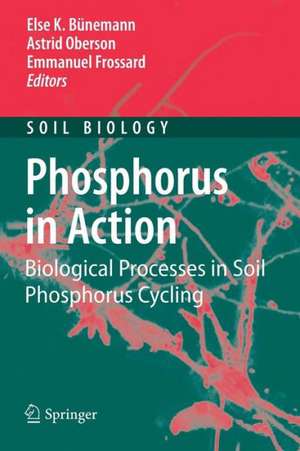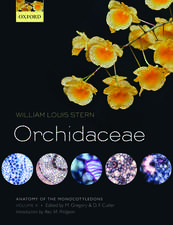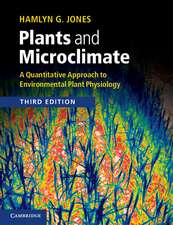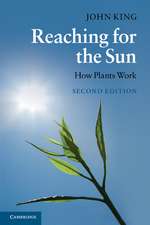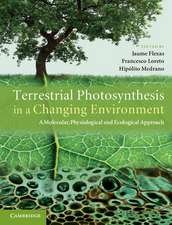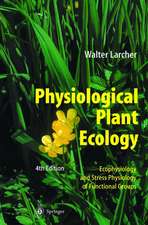Phosphorus in Action: Biological Processes in Soil Phosphorus Cycling: Soil Biology, cartea 26
Editat de Else K. Bünemann, Astrid Oberson, Emmanuel Frossarden Limba Engleză Paperback – 2 ian 2013
| Toate formatele și edițiile | Preț | Express |
|---|---|---|
| Paperback (1) | 1221.02 lei 6-8 săpt. | |
| Springer Berlin, Heidelberg – 2 ian 2013 | 1221.02 lei 6-8 săpt. | |
| Hardback (1) | 1231.47 lei 6-8 săpt. | |
| Springer Berlin, Heidelberg – 10 noi 2010 | 1231.47 lei 6-8 săpt. |
Din seria Soil Biology
- 18%
 Preț: 958.56 lei
Preț: 958.56 lei - 18%
 Preț: 1225.62 lei
Preț: 1225.62 lei - 18%
 Preț: 957.75 lei
Preț: 957.75 lei - 18%
 Preț: 1232.09 lei
Preț: 1232.09 lei - 18%
 Preț: 949.90 lei
Preț: 949.90 lei - 18%
 Preț: 1392.95 lei
Preț: 1392.95 lei - 18%
 Preț: 952.26 lei
Preț: 952.26 lei - 18%
 Preț: 1231.32 lei
Preț: 1231.32 lei - 18%
 Preț: 956.03 lei
Preț: 956.03 lei - 18%
 Preț: 948.29 lei
Preț: 948.29 lei - 18%
 Preț: 1224.18 lei
Preț: 1224.18 lei - 18%
 Preț: 1226.90 lei
Preț: 1226.90 lei - 18%
 Preț: 952.26 lei
Preț: 952.26 lei - 18%
 Preț: 942.63 lei
Preț: 942.63 lei - 18%
 Preț: 946.55 lei
Preț: 946.55 lei - 18%
 Preț: 1221.20 lei
Preț: 1221.20 lei - 18%
 Preț: 1225.94 lei
Preț: 1225.94 lei - 18%
 Preț: 946.24 lei
Preț: 946.24 lei - 24%
 Preț: 1051.29 lei
Preț: 1051.29 lei - 18%
 Preț: 947.98 lei
Preț: 947.98 lei - 18%
 Preț: 948.47 lei
Preț: 948.47 lei - 18%
 Preț: 1222.31 lei
Preț: 1222.31 lei - 18%
 Preț: 1231.64 lei
Preț: 1231.64 lei - 18%
 Preț: 1225.31 lei
Preț: 1225.31 lei - 18%
 Preț: 1229.73 lei
Preț: 1229.73 lei
Preț: 1221.02 lei
Preț vechi: 1489.06 lei
-18% Nou
Puncte Express: 1832
Preț estimativ în valută:
233.67€ • 253.73$ • 196.28£
233.67€ • 253.73$ • 196.28£
Carte tipărită la comandă
Livrare economică 22 aprilie-06 mai
Preluare comenzi: 021 569.72.76
Specificații
ISBN-13: 9783642265921
ISBN-10: 3642265928
Pagini: 500
Ilustrații: XV, 483 p.
Dimensiuni: 155 x 235 x 26 mm
Greutate: 0.69 kg
Ediția:2011
Editura: Springer Berlin, Heidelberg
Colecția Springer
Seria Soil Biology
Locul publicării:Berlin, Heidelberg, Germany
ISBN-10: 3642265928
Pagini: 500
Ilustrații: XV, 483 p.
Dimensiuni: 155 x 235 x 26 mm
Greutate: 0.69 kg
Ediția:2011
Editura: Springer Berlin, Heidelberg
Colecția Springer
Seria Soil Biology
Locul publicării:Berlin, Heidelberg, Germany
Public țintă
ResearchCuprins
Soil organic phosphorus speciation by spectroscopic techniques.- Characterization of phosphorus forms in soil microorganisms.- The use of tracers to investigate phosphate cycling in soil/plant systems.- Molecular approaches to study biological phosphorus cycling.- Modelling phosphorus dynamics in the soil-plant system.- Role of mycorrhizal symbioses in phosphorus cycling.- Solubilization of phosphorus by soil microorganisms.- Role of soil macrofauna in phosphorus cycling.- Role of phosphatase enzymes in soil.- Rhizosphere processes, plant response and adaptations.- Biological phosphorus cycling in grasslands - Interactions with N.- Biological phosphorus cycling in arctic and alpine soils.- Phosphorus nutrition of forest plantations: the role of inorganic and organic phosphorus. – Phosphorus cycling in tropical forests growing on highly weathered soils.- Biological P cycling in dryland regions.- Manure management effects on phosphorus biotransformations and losses in animal production.- Management impacts on biological phosphorus cycling in cropped soils.- Phosphorus and global change.
Textul de pe ultima copertă
Phosphorus (P) is a finite resource which is essential for life. It is a limiting nutrient in many ecosystems but also a pollutant which can affect biodiversity in terrestrial ecosystems and change the ecology of water bodies. This book collects the existing, up-to-date information on biological processes in soil P cycling, which to date have remained much less understood than physico-chemical processes. The methods section presents spectroscopic techniques, characterization of microbial P forms, as well as the use of tracers, molecular approaches and modeling of soil-plant systems. The section on processes deals with mycorrhizal symbioses, microbial P solubilization, soil macrofauna, phosphatase enzymes and rhizosphere processes. On the system level, P cycling is examined for grasslands, arctic and alpine soils, forest plantations, tropical forests, and dryland regions, while aspects of P management with respect to animal production and cropping are also presented. The final chapter examines the interactions between global change and P cycling.
Caracteristici
A valuable source of information for scientists in biochemistry, microbiology, agronomy, forestry and environmental sciences Written by renowned scientists Presents the latest results in the field of biological phosphorus cycling Includes supplementary material: sn.pub/extras
